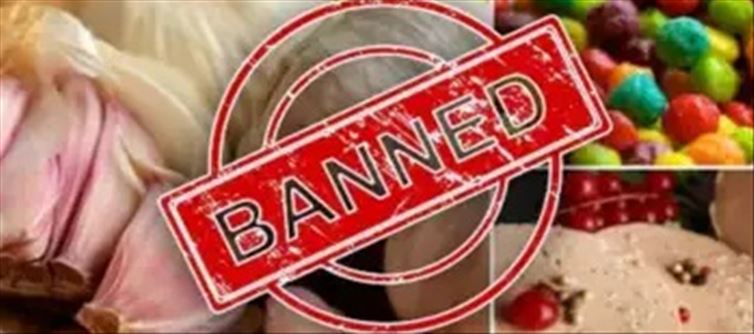
Therefore, stringent laws and regulations have been put in place to ensure the safety of the nation's food supply and the general health of its citizens. As a result, a number of foods that pose health risks, have an impact on the environment or might disrupt culture have been outlawed by the Food Safety and Standards Association of india (FSSAI).
The foods that are forbidden in indian territory are discussed in this article. The following items are on the list, along with a thorough explanation of when and why:
Brominated vegetable oil
Since 1990, brominated vegetable oil (BVO) has been prohibited in India. This food ingredient has a high quantity of bromine, which builds up in the body and causes a number of health concerns, including weight gain, thyroid disorders, organ damage, and neurological problems.
BVO improved the flavor and texture of citrus-flavored soft drinks and other liquids by acting as an emulsifier and stabilizer. In Japan, the EU, and the UK, it is prohibited. It was outlawed in the united states in august of 2024.
Sassafras oil
Because it was a health hazard, the FSSAI prohibited sassafras oil in 2003. It included safrole, a carcinogen that causes liver damage and cancer in rats. Erucic acid, which damages the heart and leads to a number of cardiovascular disorders, is also present in excess of the allowable limit. An adult can be killed with 5 milliliters of sassafras oil. Sassafras oil is likewise prohibited in the US by the FDA.
Red Bull
Caffeine, taurine, and a few other stimulants are included in red Bull, the energy drink that "gives you wings." red Bull encountered several difficulties in india as a result of the drink's components, which posed serious health dangers. After that, it was temporarily outlawed in 2006 due to its higher caffeine concentration than allowed for non-alcoholic beverages.
Excessive energy drink use raises blood pressure, speeds up the heartbeat, and even dehydrates the body.
Chinese milk and milk products
Since 2008, india has prohibited the importation of Chinese milk and its derivatives, as well as baby formula. This followed allegations of contamination and food safety issues in China. To improve the protein levels, the Chinese chemically adulterated the milk by diluting it by 30% and adding a hazardous chemical called melamine. Kidney failure is the result of kidney stones and other problems brought on by melamine.
In april 2019, the import prohibition was again extended. Until the FSSAI finds melamine in the milk products, it will remain in effect.
Other Foods Include,
• Artificial ripening agents for fruits
• Genetically modified (GM) foods
• Foie gras
• potassium bromate
• Chinese garlic
• Rabbit meat
• Confectionary with trans fats




 click and follow Indiaherald WhatsApp channel
click and follow Indiaherald WhatsApp channel